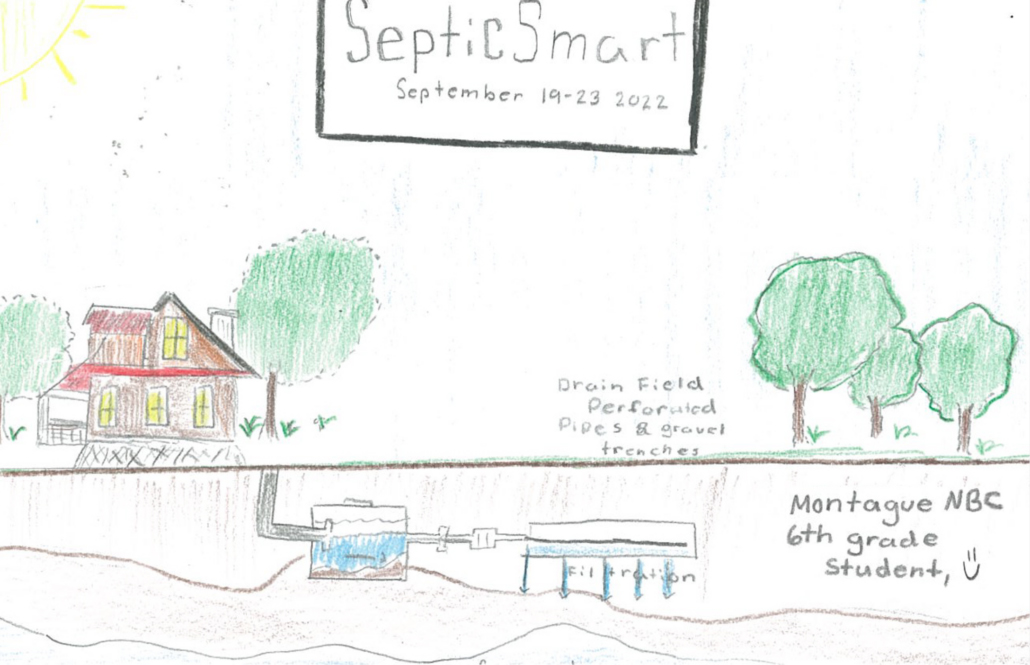Michigan Preserves White Lake’s Water Quality through Community Engagement
The Takeaway: Several Michigan communities came together to raise awareness about the dangers of septic systems polluting White Lake, creating campaigns that helped property owners take an active role in self-inspection and preventing pollution.

White Lake, which flows into Lake Michigan, was removed from the Great Lakes Areas of Concern list in 2014 after decades of cleanup efforts. But the threat of failing septic systems remained, especially in two townships lacking sewer infrastructure. To address this, the Michigan Coastal Zone Management Program funded an awareness campaign led by the West Michigan Environmental Action Council. Key activities included advocating for “SepticSmart Week,” hosting water quality forums, and conducting property owner workshops. Students created educational materials, and one student’s artwork was featured on postcards sent to 388 residents near White Lake. Fruitland Township and White River Township officially recognized SepticSmart Week, emphasizing septic system maintenance.
The overall initiative focused on:
- Education Outreach. An extensive outreach campaign, including the distribution of postcards to all properties with septic systems around White Lake.
- Advocacy. Engaging with three local jurisdictions, urging them to officially recognize SepticSmart Week in September 2022 as a way to raise awareness about septic system maintenance.
- Community Engagement. Three public water quality forums were hosted, focusing on critical water quality issues such as E. coli, toxic algae, stormwater runoff, green infrastructure, and the impact of septic systems on water quality.
- Property Owner Workshops. Two workshops were conducted for property owners, covering essential topics like septic system functionality, types of systems, maintenance best practices, signs of failing systems, and permitting procedures.
The coastal zone management grant made all of this possible, successfully raising awareness, promoting community engagement, and earning positive feedback from attendees and partners. It has even attracted additional private funding to continue this crucial work, demonstrating the impact of collaborative efforts and community engagement in safeguarding natural resources.
This community-driven effort is an important example of ways that the Michigan Coastal Management Program works in partnership with the state’s Coastal Nonpoint Pollution Control Program. (2023)
Partners: Michigan Coastal Zone Management Program, West Michigan Environmental Action Council, Public Health Muskegon County and the water resources commissioner; the Muskegon Conservation District; Fruitland and White River Townships; and the Whitehall and Montague Middle School Science Programs
PRINT